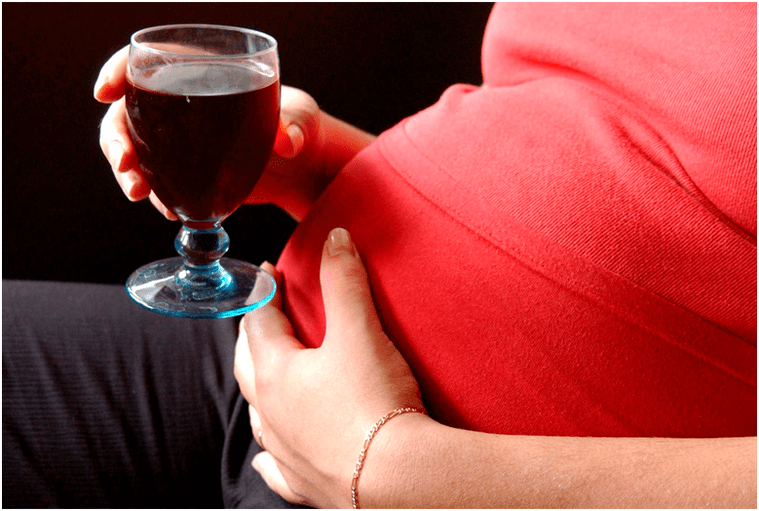The scandalous British psychotherapist David Nutt, who became famous not only for his scientific achievements, but also for his habit of expressing his thoughts and beliefs directly and without unnecessary coloring, argued that there is no substance more dangerousper person than alcohol. In terms of the degree of destructive effect, ethyl alcohol exceeds many poisons and narcotic substances, but for some reason the habit of drinking in the evening is perceived by most people as normal.
Of course, when alcoholism crosses social boundaries, and a person slips into the abyss and begins to lead a marginal lifestyle, this is perceived as a slow suicide, but are most people so critical of the so-called domestic intoxication? One or two glasses of wine with dinner, a bottle of beer with a football match or 100 grams of alcohol for a meeting with a friend are perceived as appropriate as a cup of tea, but such a habit in the end causes no less destruction. harm than chronic drinking. Is alcohol so dangerous, or is it just a stereotype? Let's go back to the opinion of scientists.
Harm of alcohol on the human body: briefly about the main
So what is the main danger of alcohol? In his deceptive harmlessness! Californian scientists claim that ethyl alcohol in small quantities is absolutely safe. True, they are tactfully silent about where "a small amount" ends and "intoxication" begins. It is also impossible to find information about who funded these studies, as they have not been published in any high-profile scientific journal, which requires all experimental protocols and sponsor records. Is it because the representatives of the alcohol industry are in charge? It remains only to guess.
At the same time, there is no such addiction that would arise on its own - more often alcoholism grows precisely from the habit of drinking a bottle at special moments of joy and sadness, in the circle of friends and relatives. And we are not talking about notorious alcoholics who cannot live a day without a bottle of cheap wine - there are enough of those who destroy their health every day in intelligent circles.
It's hard to find a more secretive liquid than alcohol. It acts in the brain like serotonin (the natural hormone of happiness), causing an imaginary feeling of happiness and high mood. It is this effect that is responsible for the appearance of a habit - instead of learning to enjoy a full life, it is easier to cloud the mind with a substitute for pleasure.

However, this effect is quickly replaced by a much less pleasant one - a total loss of control over one's own emotions and actions makes a drunk person "appear in all his glory". Some show aggression, others start crying for no reason, others behave very lovingly. . . The number of manifestations of intoxication is large, but none of them looks attractive from the outside.
Moreover, inappropriate behavior is far from the worst companion of drunkenness. According to statistics, more than half of road traffic accidents and a third of suicides occur while intoxicated. With each drink, the number of cells in the cerebral cortex gradually decreases, but the irreversible effect is not immediately noticeable. Look into the eyes of a person who has been drinking alcohol for a long time and regularly - sound thoughts, social norms and human perception there are gradually replaced by banal animal instincts and the desire for a bottle. Moreover, this process is irreversible - if the destroyed liver can still be treated a little, then the cerebral cortex is not restored. Australian scientists have proven that even those who drink alcohol moderately 2-3 times a week, the size of the brain gradually decreases and its functionality decreases due to shrinkage. On average, 200 ml of strong drink at 40 degrees kills 1000-2000 cells. Keep this in mind when pouring another glass!
Harm of alcohol for men

Like any addictive substance, ethyl alcohol acts cunningly - at first you will not notice any changes and unpleasant health consequences, but over time, when it will be impossible to refuse a drunken glass, you yourselfyou will understand how deceptive the first impression is. Even the beliefs of some alcohol users that a bottle helps them relax and relieve stress is nothing more than self-delusion. Such a feeling causes paralysis of the center of attention and self-control - ethanol, entering the blood, affects the brain centers and simulates a feeling of euphoria, which covers all other feelings, numbing the rational perception of reality. The same goes for marijuana or hashish. Why is the harm of drugs known even to a child and alcohol is perceived as pampering? No answer. . .
Moreover, the stereotype imposed by the media and advertising about the brutality and masculinity of the stronger sex is directly related to the use of alcoholic beverages. A glass of beer, a glass of whiskey or rum is considered a noble pastime of true gentlemen, but it is not so at all. Yes, at first this glass will be invisible, but with each new sip, vessels and capillaries will become tangible and less elastic, and the heart will work at half power. This means that after a couple of years of a regular "evening with a glass", blood circulation will inevitably be disturbed and, as a result, impotence will appear, which cannot be eliminated even with the help ofmodern power regulators - any of them. these drugs have a strict restriction on alcohol. So, dear men, remember: by raising one glass after another, you are depriving yourself of an important aspect of a fulfilling life.
The harm of alcohol on a woman's body
Women's alcoholism is much worse than men's. Although ethanol acts equally destructively on the organisms of both sexes, female physiology is much more strange: the vulnerability, emotionality and psychological sensitivity of the fair sex is a reasonable physiological feature, which means that they develop a lot of addiction tothe illusion of happiness and peace. faster. Trying to hide from problems in alcoholic oblivion, ladies get drunk much faster, because the body cannot resist this connection, and the peculiarities of psychology prevent the mind's efforts to prevail over the desire for a glass.
In addition, a woman's liver filters ethyl alcohol worse, which means that it breaks down faster under its influence. As statistics show, the first signs of cirrhosis appear in women on average after 5 years of alcohol addiction, and in men - after 7 years. And although the difference is small, it clearly shows that the female body is a priori more sensitive than the male. to alcohol.

What are the dangers of alcohol during pregnancy?
A pregnant woman is a sacred vessel in which the life of an unborn child is hidden. It is a pity that not every woman perceives the state of pregnancy in this way. Modern trends dictate new rules: today, ladies "in position" do not deny themselves anything, including a glass of red wine, which a gynecologist allegedly recommends to them to lighten the tone and general relaxation of the body. Who gave the diploma of medical education to these doctors? What are gynecologists guided by when recommending this to pregnant women? There are many proven and safe ways to relieve stress, such as fresh air, meditation, simple yoga poses or walking in nature. What's with the alcohol?
Studies by the American Society have shown that the rate of death of newborns in alcoholic mothers is 5 times higher than in those who do not drink alcohol. And here we are not talking about alcohol addiction, but about the notorious "cultural drinking", which is called daily drunkenness. Ethanol affects the fetus even in the mother's womb, causing underdevelopment, mental retardation and other pathologies that will accompany the child throughout life! Is his suffering worth the imaginary pleasure of a mother who could not refuse a glass of alcohol?
An interesting experiment on the effects of alcohol vapor on embryos was conducted at the Federal Medical and Biological Center. 160 eggs were placed in the incubator, at the same time an ethanol steam generator was placed in the room. As a result, half of the embryos simply did not form, and of the remaining 80, 40 died in the first days after birth, and another 25 were seriously malformed - for example, without a beak, one arm or with errors. formed legs. It is worth considering!
The harm of alcohol in the body of a teenager
There is not and cannot be an innate need to drink alcohol - children learn this by watching their family and loved ones. If the advertising, sale and consumption of alcohol were banned on the same day, no child would feel deprived or inferior and even more so would not suffer from the desire to try products containing alcohol. However, in adolescence, the statistics change significantly: more than 60% of modern teenagers try alcohol by the age of 15, and in adulthood, their percentage reaches 90.
Research by our scientists B. S. Bratusya and P. I. Sidorova showed that even at kindergarten age, children easily reproduce the process of drinking and the state of intoxication. If you ask children to play a wedding, birthday or a trip to a party, they will inadvertently clink their glasses, spill drinks in them and toast. Thus, a stereotype is formed that alcohol is a companion of celebration and fun, a symbol of a carefree and happy adult life. This is where teenage alcoholism begins.

What harm does alcohol do to today's teenagers?
Today's teenagers perceive alcohol as a small and idle pastime that allows you to overcome the first disappointment, face the awkwardness on a first date or just have fun with friends. However, even a glass of low-alcohol drink, such as beer or home-made wine, will be enough to make a fragile body drunk and lose control.
Drinking alcohol for teenagers is a wrong opportunity to assert themselves, to feel more mature, more relaxed and braver. Portraying yourself as a "bad guy" or "femme fatale" using alcohol for this is as easy as shelling pears, but is everything as harmless as it seems? Disruptive behavior, attempts to appear more mature, creepiness and hysteria are far from the worst companions of teenage drinking. Most young people, after drinking a glass, lose their sense of proportion, gradually succumbing to the feeling of substitute euphoria. This is how the connection is born, and taking into account the fact that in adolescence the body as a whole and the psyche in particular are not yet fully formed, it will be much more difficult to overcome the addiction that has arisen than in adults.
Alcohol damage to the human body: results
Data from the World Health Organization are beyond doubt: every third case of premature death is somehow related to alcohol consumption. Some drink until the complete destruction of the body, others get into accidents under the influence of ethanol, others lose self-control and harm themselves. However, today a conscious choice in favor of a sober lifestyle is not so simple: successful men and women with a glass of alcohol look at us from their TV screens, tablets and smartphones, and only in the end in asmall and almost invisible. font is a footnote: "Too much alcohol harms our health" in order to comply with the law.
Such massive advertising has a simple explanation: the profit of the alcohol industry is estimated at billions of dollars, where every potential consumer is another opportunity to fill their pockets. To resist this propaganda, it is enough to think with your head and worry about your health. The atomic blast in Hiroshima took the lives of two hundred thousand people, and alcohol kills about one and a half million every year. That's all math. . .
6 reasons to give up alcohol
A glass of wine is often offered as a relief from stress and emotional difficulties. At the same time, alcohol can be a source of many problems. We show you why alcohol-free is better.
Alcohol is a depressant
Alcohol is often referred to as an antidepressant, and this is not true. It only relaxes the body for a short time and improves mood by increasing dopamine, the pleasure hormone. But then, the body adapts to the production of the hormone and more and more is required to achieve the effect. In addition, tetrahydroisoquinoline is formed, a substance that blocks the production of dopamine and serotonin. A person stops enjoying life without stimulation, falls into a depressed state. Thousands of neurons are destroyed, which can no longer be restored.
After a short-term increase in mood, an increase in aggression and apathy follows. Scientists say that alcohol contributes to insomnia, increases anxiety and with systematic use can cause nervous disorders.
Negative effects on mood decrease after two weeks of abstinence from alcohol and are almost completely eliminated within a month - a person restores mental functions, mood normalizes, vitality and motivation increase.
Drinking alcohol affects the appearance
With the frequent use of alcohol, the skin loses its elasticity due to dehydration. This leads to premature aging and cosmetic problems: redness and swelling, a gray skin tone, bruises under the eyes and wrinkles appear. Cholesterol increases in the blood, which leads to the appearance of reddish lines on the whites of the eyes. When a person stops drinking, most body functions are gradually restored, which has a positive effect on appearance. This will last from a few weeks to a few years, depending on how long you drink.
Alcohol causes overeating
Ethanol stimulates a special AGRP protein called "obesity protein". It significantly increases appetite, causing gluttony, even when a person is full of energy and does not want to eat. The habit of drinking a glass of wine helps to slow down the metabolism, so it is better to replace alcohol with healthy drinks.
Alcohol causes disease
Alcohol is the cause of cirrhosis and hepatitis due to inflammation and scarring of liver tissue. It actively destroys the pancreas and causes a tendency to diabetes. The walls of the intestines are destroyed under the influence of alcohol, the structure of the cells changes, they stop absorbing useful substances completely, which affects the immune system and general health. Alcoholic beverages have a negative effect on most organs. In the stomach, the production of mucin is suppressed - a substance that protects the mucosa from irritants. Without it, the stomach is prone to gastritis and peptic ulcers.
Intestinal microflora is gradually restored within a week after ridding the body of alcohol. By the way, the withdrawal of alcohol from the female body is 20-25% slower than that of men. If a person stays sober for two weeks, he will have clarity of thought, blood pressure will normalize, heart rate will stabilize, shortness of breath and headaches will disappear.
Ongoing financial expenses
One of the invisible but pleasant consequences of giving up alcohol is savings. High duties are imposed on the raw materials for the production of wine, therefore the finished drinks are mostly bought locally from abroad. Alcohol prices are constantly rising, and if you drink high-quality (and the other is not worth it), then this will affect the budget. Even at an average cost of about one glass of wine with dinner per month, you'll save a hefty sum. Add to this the cost of visiting doctors, as well as buying medicines and cosmetics, which you need much less with a healthy lifestyle.
The risk of developing alcoholism
It seems that alcoholism can only develop in disadvantaged people. In fact, this is not always a pronounced disease with external signs. An early-stage alcoholic can continue an active social life, go to work, care for loved ones, and socialize with friends. Alcoholism appears regardless of standard of living, wealth and education. At the same time, malfunctions that are not obvious, at first glance, appear in the work of the body and psyche. Therefore, it is especially important to control this habit and monitor your health in order to avoid irreversible consequences. Moreover, the sooner a person stops drinking alcohol, the sooner most of the problems arising from it are resolved.
What if it's a little?
You can often find the opinion that alcohol in small doses is good for health. Doctors from the American Heart Association argue with this theory. Over six years, they observed about five thousand volunteers, half of whom drank often and little by little - just a glass of wine or a cup of beer in the evening. Experts noted that these people, according to general health indicators, have an increased risk of developing cardiovascular system disorders, including an increased likelihood of atrial fibrillation.































